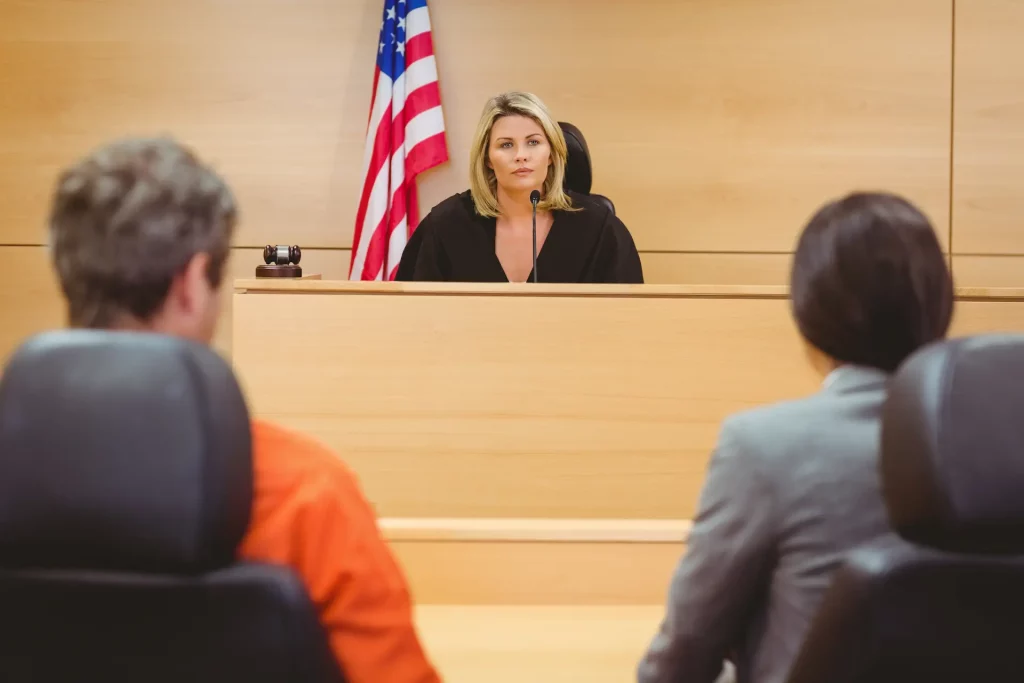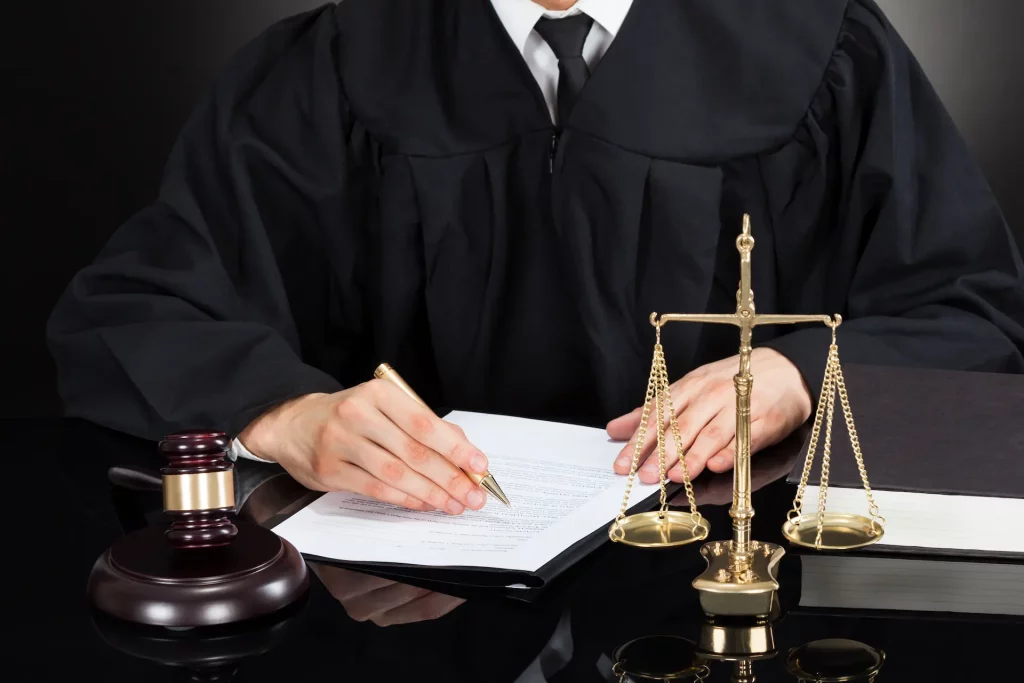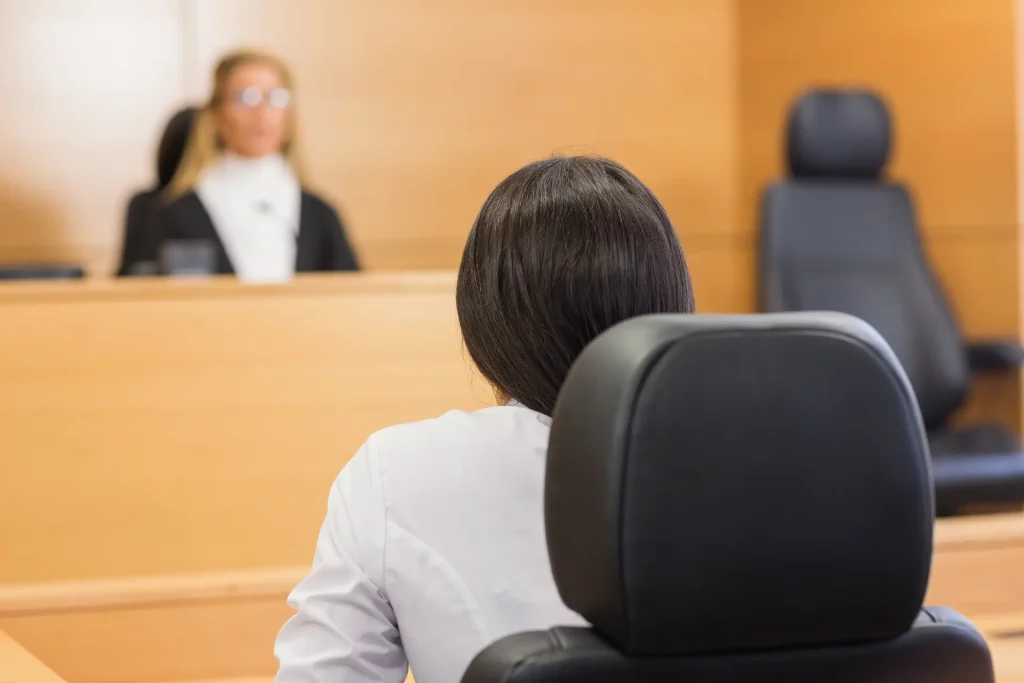Why is my Personal Injury Case Going to Trial?

A personal injury case is a lawsuit in which you contend that someone else was at fault for your injuries and seek compensation for your injuries and losses.
According to estimates, more than 90% of personal injury cases settle before going to trial. Despite efforts to settle, some cases ultimately end up in court, subjecting both the plaintiff and the defendant to the uncertainties and complexities of a trial.
Understanding what factors can lead to litigation instead of a settlement is helpful.
What is a Personal Injury Trial?
A personal injury trial is a legal proceeding where an individual alleges that another party (person, company, or organization) has wrongfully caused them harm, usually through negligence but sometimes through intentional actions. These trials aim to determine liability for the injuries sustained and establish the appropriate amount of compensation the injured party should receive. Personal injury trials can be quite complex, often involving multiple legal concepts such as negligence, strict liability, and comparative fault.
Numerous situations can give rise to personal injury trials, including car and truck accidents, slip and fall accidents, dog bites, medical malpractice, defective product injuries, and workplace accidents.
What is the Difference Between a Settlement and a Trial?

While both settlements and trials can lead to compensation for personal injury victims, there are some key differences to consider.
Settlements
A settlement refers to a mutual agreement between the parties in a personal injury case to resolve their dispute without going to trial. Settlements involve the payment of a sum of money as compensation to the injured plaintiff by the defendant or their insurance company. Negotiations usually start after the plaintiff’s attorney has gathered enough evidence to establish the defendant’s liability. In most cases, settlements are reached before a trial begins, but sometimes they can occur during the trial.
Settlements may also include non-financial terms, such as an agreement for the defendant to undertake certain actions or changes in behavior.
Settlements are seen as a way to avoid the uncertainty associated with a trial. They provide both parties with the opportunity to reach a mutually acceptable resolution and can provide the injured person with faster access to compensation. The decision to accept a settlement ultimately rests with the injured party, who should carefully consider the terms and consult their legal counsel before making a final decision.
Settlements offer several advantages, including:
- Time and Cost Efficiency: Settling a case avoids the lengthy and expensive trial process, saving both parties considerable time, legal fees, and court costs.
- Certainty: Trials come with inherent uncertainties. Settling a case allows the injured party to secure a guaranteed amount of compensation, providing them with financial stability and closure.
- Confidentiality: Settlements often include a confidentiality clause, which prevents the parties from disclosing the terms of the agreement. This can be advantageous for defendants who wish to avoid negative publicity or for plaintiffs who prefer to keep their compensation amounts private.
Trials
A trial is a formal process within the legal system where a judge or jury examines the facts and evidence in a case to determine the outcome, such as whether the defendant is liable for the plaintiff’s injuries and, if so, the appropriate amount of compensation.
Why Would a Personal Injury Case Go to Trial?

While most personal injury cases are resolved through successful settlement negotiations, several factors can influence whether a case proceeds to trial. These factors include:
1. Insufficient Settlement Offers
One factor that often leads to personal injury cases going to trial is the presence of low settlement offers. Insurance companies ultimately have one goal: to make money, which means paying as little as possible to resolve claims. As a result, they will often make unreasonably low settlement offers that do not adequately account for the full extent of the injured party’s losses.
In such cases, the injured party may choose to go to trial in the hopes of receiving a more just compensation determined by a judge or jury. Proceeding with the trial process may send the defendant or insurance company a message that low settlement offers are not acceptable, leading to a more reasonable settlement offer.
2. Disputed Liability
Another factor that can push a personal injury case toward trial is if liability is disputed by the defendant or its insurance company. In some cases, the defendant may contest their responsibility for the injuries suffered by the plaintiff. This typically occurs when there are conflicting accounts of the events leading to the injury or when the defendant argues that the plaintiff’s actions contributed to or caused the incident.
When liability is disputed, it becomes crucial to determine who is at fault for the injuries. In such cases, a trial becomes necessary to evaluate the evidence and establish liability.
The judge or jury carefully assesses witness testimonies, expert opinions, and any available documentation to make a decision, like medical records and police reports.
3. Complex or Unique Circumstances
Personal injury cases involving complex legal or factual issues may also be more likely to proceed to trial. These cases often require a detailed examination of intricate legal principles or technical aspects that are challenging to resolve through settlement negotiations alone.
Examples of personal injury cases with complex circumstances include medical malpractice, product liability, or toxic torts.
Detailed medical knowledge and expert opinions may be necessary in medical malpractice cases to establish negligence.
Product liability cases involving defective products may require an in-depth analysis of manufacturing processes, engineering standards, or industry regulations. Similarly, toxic tort cases involving exposure to hazardous substances may necessitate scientific evidence and expert testimony.
Given the intricacies and potential precedents involved in such cases, going to trial allows for a comprehensive exploration of the legal and factual complexities. It allows both parties to present their arguments, introduce expert witnesses, and ensure that the case’s unique circumstances are thoroughly examined and understood.
4. Unreasonable Defendant or Insurance Company
In some situations, the uncooperative behavior of the defendant or their insurance company can be a driving force behind a personal injury case going to trial. Despite the injured party’s attempts to engage in settlement negotiations in good faith, the defendant or their insurance company may exhibit unreasonable conduct, such as refusing to accept any liability, denying the validity of the injuries, or consistently making inadequate settlement offers.
When faced with an unreasonable defendant, going to trial may become the only viable option to seek justice and obtain appropriate compensation.
Are There Any Benefits of Going to Trial?

While settlement negotiations are often preferred, going to trial can offer distinct benefits:
Better Potential For Adequate and Just Compensation
One of the most significant benefits of going to trial is the potential for securing a more substantial and just compensation award for your injuries and losses.
Trials allow the injured party to present their case before a judge or jury, who can assess the evidence, evaluate the extent of the injuries and losses, and determine a fair and just compensation amount. Unlike settlement negotiations, where the final amount may be subject to compromise, a trial allows one to argue for the full extent of the damages suffered. This can result in a more substantial financial recovery that better addresses the injured party’s needs and losses.
Opportunity for Justice and Accountability
Another critical benefit of going to trial is the opportunity to hold the responsible party accountable for their actions. In some cases, personal injury victims may feel deeply dissatisfied with the idea of accepting what they view as a “hush money” settlement, especially if the defendant has not admitted responsibility for the harm they’ve caused.
A trial provides a public, formal setting where the facts of the case are examined, and if you prevail, the defendant is found legally and publicly liable for their behavior. This can offer a sense of justice and closure to personal injury victims and serve as a deterrent to negligent behavior in the future.
Get Help From An Experienced Personal Injury Lawyer
Experienced personal injury attorneys are instrumental in navigating the complexities of a trial. They can assist in case preparation, present the case effectively during trial proceedings, and protect the injured party’s rights throughout the process.
Ultimately, the decision to go to trial is a strategic move that your personal injury attorney will recommend based on the unique circumstances of your case. Trust in their expertise and remember that their primary goal is to ensure you receive the justice and compensation you deserve.
Consulting with an expert personal injury attorney is essential to protect your rights, navigate the legal process effectively, and maximize the chances of achieving a favorable outcome.
FAQs
Q: How does the decision to go to trial affect the timeline and duration of a personal injury case?
A: The decision to go to trial can significantly impact the timeline and duration of a personal injury case. Trials generally take longer than settling a case through negotiation or alternative dispute resolution methods; preparing for a trial takes time and requires additional steps compared to the settlement process.
Court dockets and availability can also affect the scheduling of the trial, leading to potential delays. The duration of a trial itself can vary depending on the complexity of the case, the number of witnesses, and the court’s schedule. It is not uncommon for a trial to last several days, weeks, or even months, further prolonging the overall duration of the case.
Finally, if the losing side decides to appeal the verdict, this can lead to a much longer duration and further delays, possibly increasing the case’s timeline by additional months or years.
Q: What are the stages of a personal injury claim?
A: Personal injury claims go through many stages, and the process will change depending on whether the case is settled or litigated. The following is a general overview of the potential stages:
- Consultation and investigation
- Filing an insurance claim
- Demand and negotiation
- Filing a lawsuit
- Discovery
- Pre-trial motions
- Trial
- Verdict and judgment
- Appeals (if applicable)
Q: How long do most personal injury claims take?
A: The duration of personal injury claims can vary significantly depending on various factors, including the case’s complexity, the extent of injuries, the cooperation of involved parties, and the court’s schedule. Some cases can be resolved within a few months, while others may take years to reach a resolution.

Michael S Callahan is an attorney and founder of The Callahan Law Firm. He focuses his practice on representing individuals and families in personal injury cases involving motor vehicle and truck accidents, workplace accidents and defective products. With over 25 years of experience, he is dedicated to fighting on behalf of people whose lives have been forever altered by the negligence and carelessness of corporations and individuals. Originally trained as a mechanical engineer, Michael has been practicing law and fighting for justice for those who need it most since 1994. He is board-certified in Personal Injury Trial Law by the Texas Board of Legal Specialization and a member of various esteemed legal associations. Outside of work, Michael enjoys spending quality time with his family, outdoor activities, and continually striving to improve as a trial lawyer and human being.











